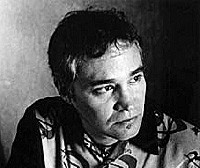To start with the most unexpected: By the time this hits print, former Shelby County mayor Bill Morris may have decided definitively for or against a reprise of his unsuccessful 1967 race (while serving as sheriff) for mayor of Memphis. (For the record, that race was won by the late Henry Loeb, whose ill-starred tenure coincided with the sanitation strike of 1968 and the assassination of Dr. Martin Luther King.)
Morris has told various intimates that he’s thinking about it, others that it’s not a serious possibility. Some bloggers are already positing the notion that he’s a stalking horse for the “establishment” in the event that, for whatever reason, incumbent Mayor Willie Herenton exits from the race.
Others see Morris as a means whereby the selfsame establishment could break up an anti-Herenton vote. Still others see him as the anti-establishment candidate.
Question: In the unlikely event of a Bill Morris candidacy, would the name “Bill Morris Parkway” constitute an unfair advantage requiring a (temporary) name change?
Such as: To Whom It May Concern Boulevard? Road of No Return?
• To nobody’s great surprise, John Willingham, former Shelby County commissioner and all-purpose watchdog of the public weal, announced again Saturday for Memphis mayor — an office he sought once before, in 2003. (He also ran for county mayor last year.)
Making his announcement Saturday in the friendly confines of the Dutch Treat Luncheon group in Southeast Memphis, Willingham noted the participation in his several past campaigns of many of those present — longtime conservatives, for the most part (though some of them, like Willingham himself, have a quirky populist streak that wanders over traditional dividing lines).
He spoke to the question that many no doubt want to ask him: “Why are you getting into this race and Carol Chumney‘s already in it, and that just goes to split the vote, and Willie’s going to win anyway?”
After acknowledging that, indeed, “Willie may win it,” Willingham basically called rank on City Council member Chumney. He reminded his listeners not only of his race against Herenton four years ago but of the fact that, unfazed by a fairly distant second-place finish, “I began this race last year, so I got a jump.”
Willingham’s platform was also familiar: term limits, limits on the city mayor’s contract authority, opposition to the sale of MLGW, to start with.
As Chumney had on Thursday, Willingham cited the $6 million parking-garage scandal at FedExForum (an issue he could legitimately claim to have been an early bird on) and the boondoggle aspects of Networx, a fiber-optic plan (“in the age of, what, wireless”) that MLGW had sunk $25 million into.
Apropos the garage deal, wherein some $6 million in federal funds had been misdirected into the construction of a for-profit parking garage “which you can’t even park in unless you have a season pass,” Willingham was emphatic: Doing that deal was a fraud and a felony and “somebody’s going to go to jail!”
• If there was any remaining suspense about Carol Chumney’s own mayoral intentions, it had been laid to rest at the University of Memphis-area Holiday Inn on Central Avenue Thursday evening.
Before an appreciative crowd of more than 100 well-wishers, the maverick first-term City Council member from Midtown declared loud and clear: “I want to be mayor!” Likening herself to the innovative Wilson, late co-founder of the world-famous hotel chain, Chumney promised to apply original thinking to the problems of Memphis — including crime, out-migration, and an up-and-down economy.
To accomplish her goals of civic regeneration, Chumney promised she would build a wide-ranging coalition. She also went out of her way to praise local media for its attentive coverage of her activities over the last few years.
Her announcement displayed the same combative spirit that has earned her something of a following citywide (while incurring a few cold shoulders within the ranks of city government itself). In the course of a single sentence, she condemned both the Forum garage deal and the ill-fated Networx investment initiative — the former mischance attributable to Herenton, the latter to former MLGW head Herman Morris, who himself seemed on the verge of announcing.
• Timing his own announcement for the same day as Chumney’s, lawyer Jim Strickland, the councilwoman’s opponent during her District 5 council race four years ago and a candidate for that seat again this year, held a well-attended fund-raiser a few blocks away at the East Memphis home of current city councilman Jack Sammons.
Strickland, who battled a name-recognition problem back then, starts out the favorite in this year’s race. He made his own semi-official announcement for the council race in a news release earlier Thursday and netted some $41,000 at Thursday night’s affair.
A likely opponent for Strickland is Denise Parkinson, who of late has been active in the campaign to save (or restore) an amusement park at the site of Libertyland.
• Shelby County Democrats, whose biannual reorganizations tend to be donnybrooks reflecting legitimate splits (or diversity) in the party’s local membership, are getting ready for another showdown — with preliminary party caucuses on March 3rd, followed by the decisive party convention on March 31st.
Chairman Matt Kuhn won’t be running again, but lawyer Jay Bailey, who made an abortive off-year attempt to unseat Kuhn last year, will be. Bailey has support ranging from blogger Thaddeus Matthews to longtime activist and pal David Upton to some of last year’s defeated Democratic countywide candidates whom he represented in legal appeals, and he says he’s been courting the party’s labor elements.
Two of the party’s de facto factional leaders, Shelby County commissioner Sidney Chism and Desi Franklin of Mid-South Democrats in Action (herself a possible candidate), are looking elsewhere, though, and some say Chism’s ally and fellow commissioner, Deidre Malone, is considering a run.


